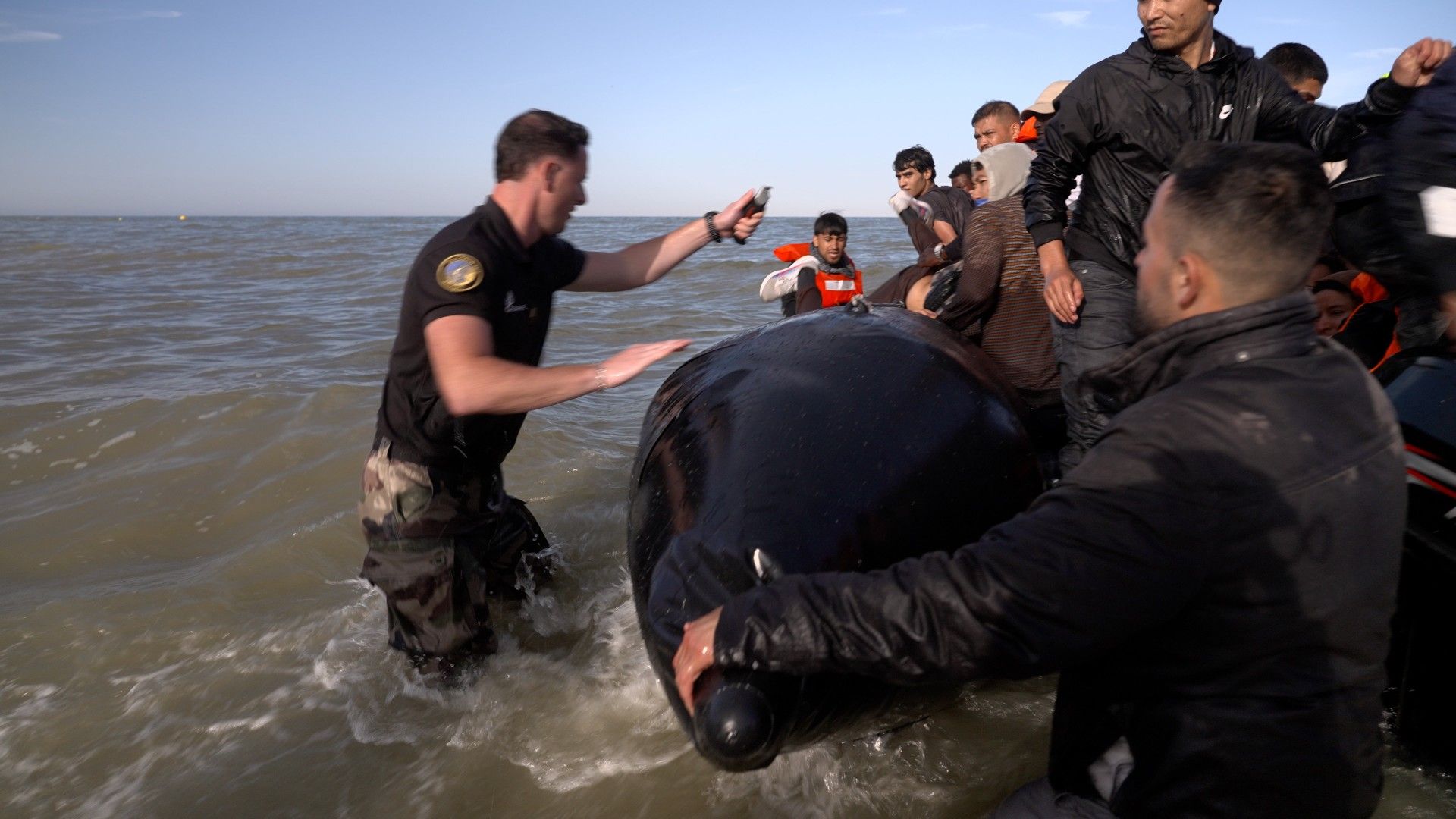French Police Crackdown on Migrant Boats in the English Channel

Introduction
The ongoing crisis of migration across the English Channel has escalated, with reports of French police actively slashing the inflatable boats used by migrants. This move, part of a stricter stance on illegal crossings, has attracted significant media attention and raised numerous humanitarian concerns. The situation is pivotal in discussions surrounding immigration policies and the responsibility of European nations in managing migration.
Recent Developments
In recent weeks, French authorities have reported a sharp increase in attempts to cross the Channel. According to the UK Home Office, more than 40,000 people made the perilous journey in 2022 alone. In response, the French police have implemented aggressive measures to deter these crossings, including the destruction of boats found on beaches or in makeshift camps.
On multiple occasions, videos have surfaced showing officers slashing the sides of dinghies, rendering them unseaworthy. The French government has justified these actions as necessary to prevent dangerous crossings and to uphold national security. Critics, however, argue that this tactic places migrants in greater peril as they may resort to using increasingly dangerous methods to undertake the crossing.
Humanitarian Concerns
Human rights organisations have vehemently opposed the crackdown. Groups such as Save the Children and the Refugee Council have called for a more humanitarian approach, citing not only the immediate dangers this policy poses but also its long-term implications for vulnerable individuals seeking refuge. The UN Refugee Agency has also stated that slashing migrant boats violates international law, urging nations to provide safe passage instead.
Reports indicate that many of the individuals attempting the crossing come from war-torn regions and are fleeing dire situations, including persecution and violence. Activists argue that instead of diminishing the number of boats, the measures taken by French authorities only exacerbate the crisis.
Conclusion
The French police’s decision to slash migrant boats reflects a growing tension in the European migration landscape. As pressure mounts on governments to control illegal crossings, this tactic raises serious ethical questions and dire consequences for migrants seeking safety. The situation calls for a balanced approach that addresses security concerns while prioritising humanitarian obligations. In the wake of these developments, it remains uncertain how France and the UK will reassess their immigration policies and responsibilities towards displaced persons in the coming months. A collaborative European strategy may be necessary to create lasting solutions that respect human rights whilst ensuring border security.
You may also like

An Overview of the Ongoing Situation in Ukraine

The Sun UK: Your Guide to Current News and Events

Unpacking the Lucy Traitors Controversy
SEARCH
LAST NEWS
- Remembering Wendy Richard: The Promise to Co-Star Natalie Cassidy
- How Did Anglian Water Achieve an ‘Essentials’ Rating for Mental Health Accessibility?
- Shai Hope Leads West Indies in T20 World Cup Clash Against South Africa
- What We Know About Weston McKennie: Future at Juventus and Past at Leeds
- What We Know About the Upcoming Live Nation Antitrust Trial